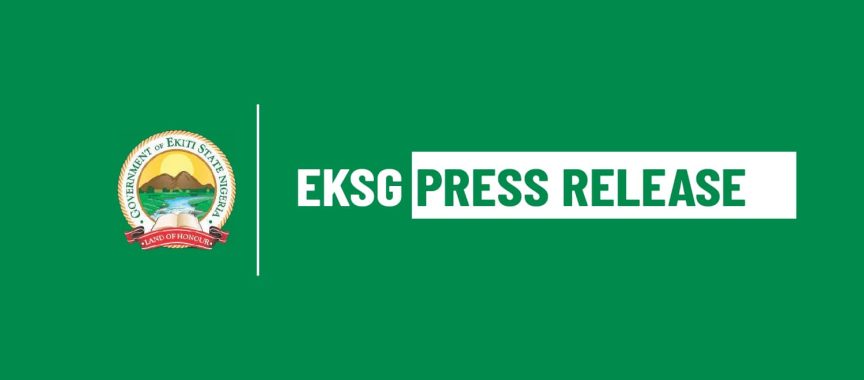The Government of Ekiti State hereby wishes to draw the attention of the general public to this pressing health alert, the importance of being aware of and taking preventive measures against Anthrax.
Anthrax is a serious disease that affects both animals and humans (Zoonotic). It presents flu-like symptoms such as cough, painless sores with a black centre appearing after the blister, fever, and muscle aches, and if not diagnosed and treated promptly, it can lead to severe complications including pneumonia, respiratory problems, shock and even death.
Anthrax is primarily a disease of animals; however, due to the close proximity between humans and animals, it can easily be transmitted to humans through inhalation of anthrax spores or consumption of contaminated or infected animal products such as hides and skins, meat, and milk.
In the light of this, the following preventive measures are strongly advised:
Intensify Vaccination: There is a critical need to intensify the vaccination of animals at risk. Proper vaccination protocols should be followed to ensure the health and well-being of livestock.
Proper Disposal of Suspected and Infected Animals: Any suspected or infected animals exhibiting the aforementioned symptoms should be buried deep into the soil, along with the equipment used in the burial. Prior to burial, appropriate chemicals should be applied to kill the anthrax spores, ensuring containment and preventing further spread.
Avoid Risky Consumptions: The general public is strongly advised to abstain from the consumption of hides (ponmo), smoked meat, and bush meat, as they pose a serious risk until the situation is brought under control. It is crucial to prioritize public health and safety during this time.
Hygiene Practices: Environmental and personal hygiene must be strictly observed in places where by-products like hides (Ponmo), bone meal, and blood meal are produced. These areas should be maintained in a clean and sanitized condition to minimize the risk of contamination. We specifically encourage persons at risks such as people who handle animals, people who consume dead animals, healthcare workers, law enforcement officers and anyone who recently travelled to a location with a confirmed anthrax case to take their hygiene practices seriously.
Effective Disinfection: Prior to processing, wool, hides, and bone meal should be properly disinfected using appropriate chemicals that effectively kill anthrax spores. This step is crucial to ensuring the safety of the end products.
Veterinary Assistance: If anthrax is suspected and an animal eventually dies, it is vital not to open the carcass. Instead, promptly contact a veterinarian who will perform aseptic procedures to collect blood samples for analysis from the peripheral blood vessels.
Decontamination: Any areas or soil where a suspected dead animal is found should be thoroughly decontaminated. This measure is essential to preventing further transmission and ensuring a safe environment.
Reporting Suspicions: Always contact the regional veterinary officer, who will, in turn, report to the Director of Veterinary Services in the state, to report any suspicion based on the aforementioned signs. In addition, report this to the State Ministry of Health authorities in case anthrax is confirmed and human contacts need to be managed. Early reporting and prompt action are crucial to containing the spread of the disease. We urge the public to not slaughter or consume sick animals.
We urge the general public, farmers, butchers and stakeholders in the agricultural sector to adhere strictly to these preventive measures to safeguard public health and prevent the further spread of anthrax.
The State Ministry of Agriculture and Food Security is closely monitoring the situation in collaboration with the State Ministry of Health and Human Services and will provide updates and further guidance as necessary. Citizens should only share information from verified sources like Ministry of Agriculture and Food Security, The State Ministry of Health, NCDC, WHO, etc.
For further information or inquiries, please contact the State Director of Veterinary Services on 070 069 8478 or visit Ministry of Agriculture and Food Security at the State Secretariat, Ado-Ekiti. You can also call any of the following emergency numbers – 070492004288, 070492004236, 070492004334
Signed:
Ebenezer Boluwade
Special Adviser, Agriculture and Food Security, Ekiti State.
Dr Oyebanji Filani
Honourable Commissioner for Health and Human Services, Ekiti State
Last modified: July 21, 2023

